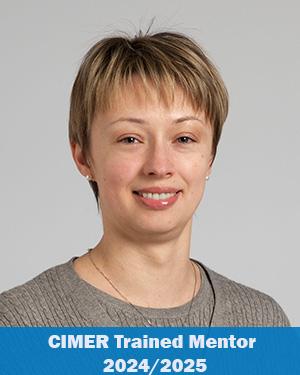Anna Valujskikh Laboratory
-
Anna Valujskikh Laboratory
- Principal Investigator
- Research
- Our Team
- Publications
- Careers
- Research News
Research
Biography
Education & Professional Highlights
Medical Education - Moscow State University
Immunology
1996
Graduate School - Moscow State University
Cell Physiology and Immunology
1994
Research
Immunologic memory is the ability of the immune system to respond rapidly and more efficiently to the previously encountered pathogens. While memory T cells are essential for host protection against infections, they can be harmful for life-saving organ transplants. Studies in laboratory animals and humans confirm that the high frequency of donor-reactive memory T cells prior to transplantation correlates with poor allograft outcome. The focus of our group is immunolobiology of memory CD4 T cells in general and the functions of donor-reactive memory CD4 T cells during allograft rejection in particular. We have previously demonstrated that memory CD4 T cells contribute to allograft rejection through multiple pathways. Such a redundancy of effector mechanisms makes controlling memory T cells in alloraft recipient a very challenging problem. Indeed, alloreactive memory T cells appear to be resistant to currently used graft-prolonging strategies including lymphoablation, immunosuppressive drugs and conventional costimulatory blockade. Our ultimate goal is to better understand the functions of graft-reactive memory CD4 T cells in the context of transplantation. This information should enable us to target various aspects of memory T cell response and promote rational development of combinatorial therapies for sensitized transplant recipients.
Our Team
Selected Publications
View publications for Anna Valujskikh, PhD
(Disclaimer: This search is powered by PubMed, a service of the U.S. National Library of Medicine. PubMed is a third-party website with no affiliation with Cleveland Clinic.)
Schenk, A., Gorbacheva, V., Rabant, M., Fairchild, RL., Valujskikh, A. Effector function of donor-reactive CD8 memory T cells are dependent on ICOS induced during division in cardiac grafts. Am. J. Transplantation, 2009, 9:64-73.
Gorbacheva, V., Fan, R., Li, X., Valujskikh, A. Interleukin-17 promotes early allograft inflammation. American Journal of Pathology, 2010, 177:1265-1273.
Sicard A, Phares TW, Yu H, Fan R, Baldwin WM 3rd, Fairchild RL, Valujskikh A. The spleen is the major source of antidonor antibody-secreting cells in murine heart allograft recipients. Am. J. Transplantation, 2012, 12:1708-1719.
Ayasoufi, K., Yu, H., Fan, R., Wang, X., Williams, J.,Valujskikh, A. Pre-transplant antithymocyte globulin has increased efficacy in controlling donor-reactive memory T cells in mice. Am. J. Transplantation, in press.
Careers
Training at Lerner Research Institute
Our education and training programs offer hands-on experience at one of the nationʼs top hospitals. Travel, publish in high impact journals and collaborate with investigators to solve real-world biomedical research questions.
Learn MoreResearch News

Drs. Valujskikh, Dalton and McCurry’s research improves essential understanding and practices in transplantation and patient care.

New study demonstrates water channel AQP4 is required for immune cell activation, which may provide a novel target for controlling transplant rejection.

Dr. Valujskikh will investigate how immune cell subpopulations produce pathogenic antibodies following organ transplant that can threaten outcomes, including organ acceptance and function and patient survival, in an effort to develop new therapies for antibody-mediated rejection.
